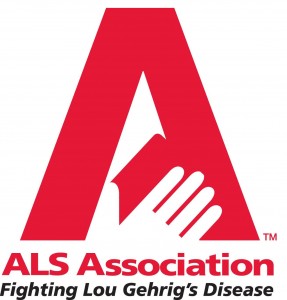By USDR.
The ALS Association joins the nation this Memorial Day to remember all of the men and women who died while serving in the U.S. military. During May, ALS Awareness Month, The ALS Association is also paying tribute to veterans like retired Air Force Technical Sergeant David Masters of Omaha, Nebraska, who fought bravely fought for his country only to return home to wage a new battle against ALS: a battle that will take his life.
ALS is a recognized service-connected disease, with a minimum 100 percent disability rating, that for unknown reasons strikes veterans at twice the rate of their civilian peers. It is a progressive neurodegenerative disease that affects nerve cells in the brain and the spinal cord, robbing people of the ability to walk, to talk and even blink an eye. It traps them inside a body they no longer can control and ultimately prevents them from breathing as it takes their life. There is no cure, and only one drug approved by the U.S. Food and Drug Administration (FDA) that only modestly extends survival.
 The ALS Association is committed to improving the quality of life for all military veterans with ALS in addition to assisting their family caregivers. That effort begins with scientific research to find a cure and the continued search to find answers to understand why regardless of the branch of service; regardless of location or year of combat deployment; and regardless of service during a time of peace or war, those who have served their country in uniform are at greater risk of dying from ALS.
The ALS Association is committed to improving the quality of life for all military veterans with ALS in addition to assisting their family caregivers. That effort begins with scientific research to find a cure and the continued search to find answers to understand why regardless of the branch of service; regardless of location or year of combat deployment; and regardless of service during a time of peace or war, those who have served their country in uniform are at greater risk of dying from ALS.
The Association and its thousands of advocates nationwide were proud to report that Congress recently passed legislation that included a twenty percent increase in funding for the ALS Research Program (ALSRP) at the Department of Defense. The program will receive $7.5 million this year, bringing the total funding for the ALSRP to $40 million, all of which is explicitly focused on finding treatments for ALS.
“Too many marines, soldiers, sailors and airmen are returning to a new battle on the home front that we still don’t fully understand,” said Jane H. Gilbert , President and CEO of The ALS Association. “From World War II to today, each new generation of veterans must shoulder the disproportionate burden of Lou Gehrig ‘s Disease, which drives our determination to find a cure.”
“May is ALS Awareness Month, and it’s important that we continue to get the word out about this alarming disparity and engage people to take action,” said Gilbert. “Awareness is important among the general public but also among the military population because many times veterans and their spouses do not know they are eligible for essential disease-related benefits.”
Above all, veterans need to know that they do not have to battle ALS alone. The U.S. Department of Veterans Affairs recognizes ALS as a service-connected disease and provides both financial and medical support to those with at least 90 continuous days of military service. Veterans with specific questions concerning their VA benefits are encouraged to visit:http://www.alsa.org/als-care/veterans/faqs-new-veterans.html.
The ALS Association also offers a wealth of information in its digital library to help patients and their caregivers cope, understand and manage their disease. Support groups led by volunteers and staff of The Association are held around the country and frequently devote a portion of these meetings to talk with family caregivers separate from the persons with ALS.
Services vary by chapter but most ALS Association chapters loan a range of equipment to people with ALS including lift devices, wheelchairs and digital communication devices. In addition, many ALS Association chapters offer respite programs to provide family caregivers time away from the home and their responsibilities. Caregivers can use the time – from a few hours to a full day or more – to take care of personal matters, catch up with family and friends and have a chance for rest and relaxation. A listing of local chapters can be found here: http://www.alsa.org/community/chapters/.
“More than anything, continuing to give voice to our veterans with ALS—both past and present—is how each and everyone one of us can contribute to the fight against ALS,” said Gilbert.
Here’s how to make a difference for a Veterans with ALS this Memorial Day:
- Visit the ALS Awareness Month campaign landing page to learn how to take immediate action by telling or sharing a story; becoming an advocate or signing up for more information.
- Donate in honor of a veteran to help fund research to find a cure.
- Volunteer to help a veteran with ALS whether it be delivering a hot meal or working in one of The Association’s certified clinics.
According to a statement, “The ALS Association is the only national non-profit organization fighting Lou Gehrig ‘s Disease on every front. By leading the way in global research, providing assistance for people with ALS through a nationwide network of chapters, coordinating multidisciplinary care through certified clinical care centers, and fostering government partnerships, The Association builds hope and enhances quality of life while aggressively searching for new treatments and a cure. For more information about The ALS Association, visit our website at www.alsa.org.”

Average Rating